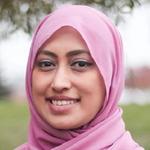From Politics to Social Justice to STEM – 9 Major Moments for Muslim Women in 2021
Current Events
|
Dec 29, 2021
|
10 MIN READ
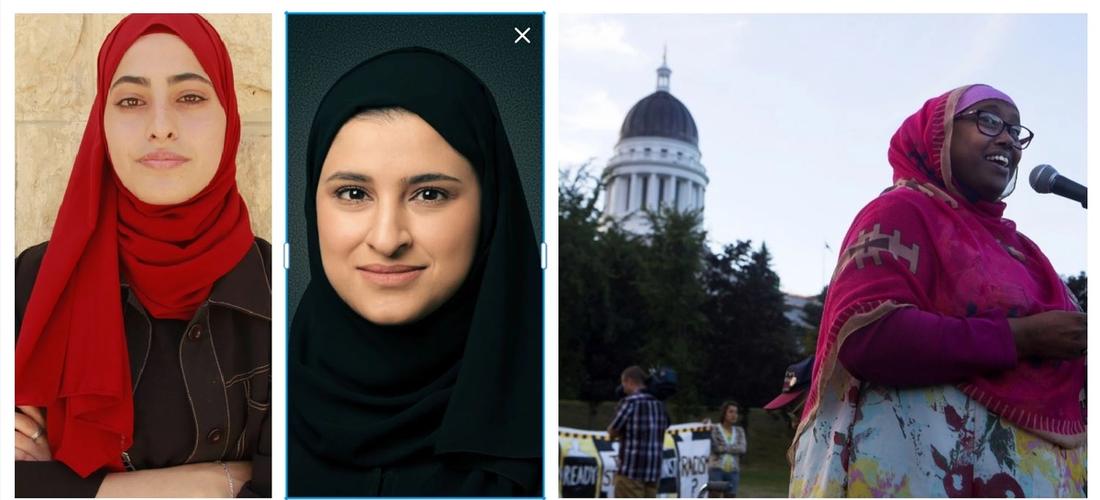
From L-R: Muna El-Kurd, Sarah bint Yousif Al Amir and Deqa Dhalac
Fighting hijab bans, changing the public conversation around Palestine, leading a space agency, breaking boundaries in television, standing up as visibly Muslim women 20 years after 9/11. The year 2021 pushed and challenged us in ways we didn’t know possible. The COVID-19 pandemic continued while the emergence of vaccines helped us take back some control of our lives. Muslim women continued to blaze trails, fight against injustices, break boundaries in STEM and run for political offices across the country in 2021. And, we’ve loved chronicling and reading their stories and sharing them with you.
Lists like these are inherently tough to put together because there is no way we can encompass the entirety of all the extraordinary Muslim women who did big things and all the huge moments that happened this year. But we can try and gather some of the highlights for you. Here are nine historical moments and Muslim women to remember from 2021.
1. Muslim women run for elected positions across the country.
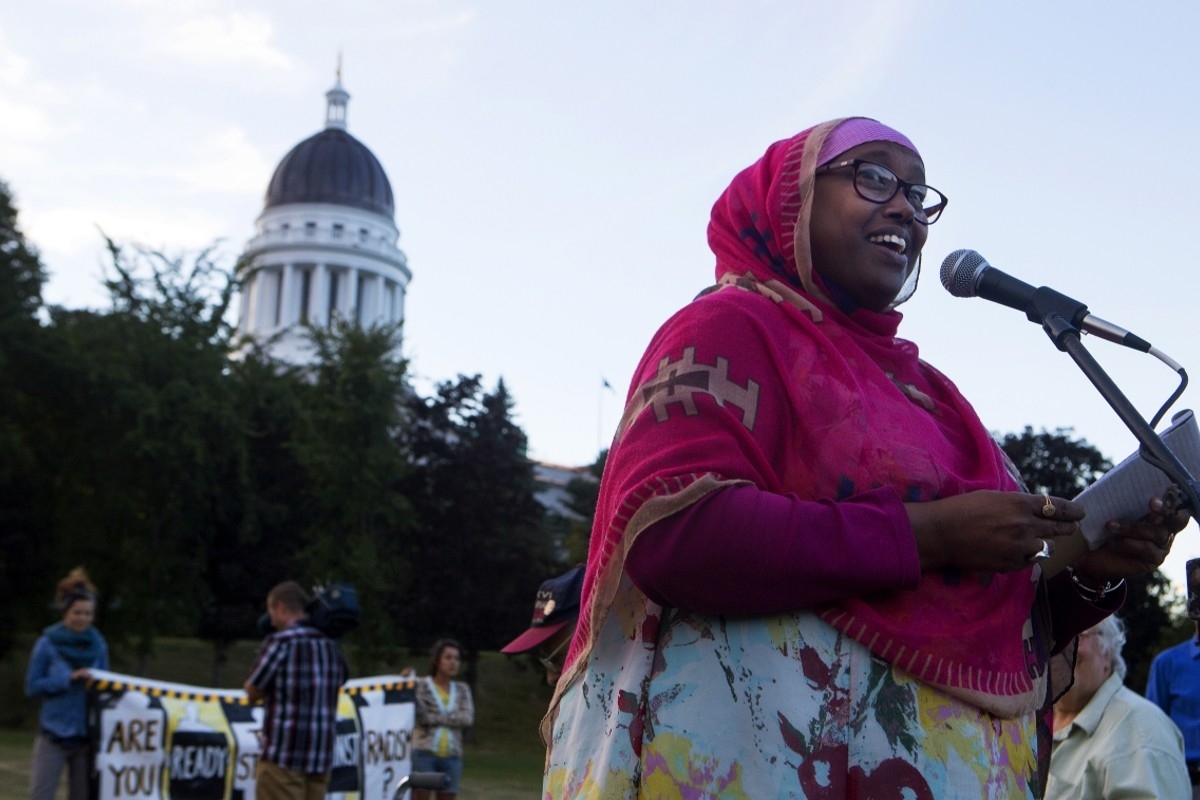
South Portland, Maine Mayor Deqa Dhalac; image source: Bangor Daily News
From Maine to Michigan, American Muslim women ran for elected positions, becoming pillars in their communities in 2021. Deqa Dhalac, born in Somalia, moved around to a few countries and states before settling in Maine, where in 2021 she was elected as South Portland’s first Black and Muslim mayor, serving in a 90 percent white city. She will focus on diversity, affordable housing and the environment in her role.
In New York City Shahana Hanif made history as the first Muslim woman and Bangladeshi American elected to the New York City Council for Brooklyn’s 39th district. Shahana is an activist and community organizer in a district with 750,000 Muslims. Her policies include affordable housing, policing with community safety and increasing language services in health care.
Like Shahana, Egyptian American Rana Abdelhamid is working to make a difference in New York. She’s one of the founders of International Muslim Women’s Initiative for Self-Empowerment ((IM)WISE), which teaches Muslim women self defense and entrepreneurial skills. Now she’s running for the 12th district in Congress to empower women and help them feel safe.
In Hamtramck, Michigan, a small city with a large immigrant hub, Amanda Jaczkowski will be the first Polish Muslim American woman to hold this seat in January 2022 as part of what’s being called the “first all Muslim city council” in the U.S. Jaczkowski says Hamtramck is like “a seven-layered cake” where people hold onto cultures and traditions as they assimilate and coexist.
Bushra Amiwala grew up going to school in the Skokie School District 73.5 Board of Education. Now she’s serving as a school board member there. She’s the youngest Muslim elected to office in the United States. This year Bushra was named on the list of Forbe’s Trailblazers, which looks at milestones of women from diverse backgrounds. Bushra opened the Amiwala Foundation to inspire people who are politically engaged. And these are just a handful of passionate Muslim women who ran for office in 2021!
2. Hijab bans enforced in Quebec, threatened in France & (being) eliminated in the U.S.
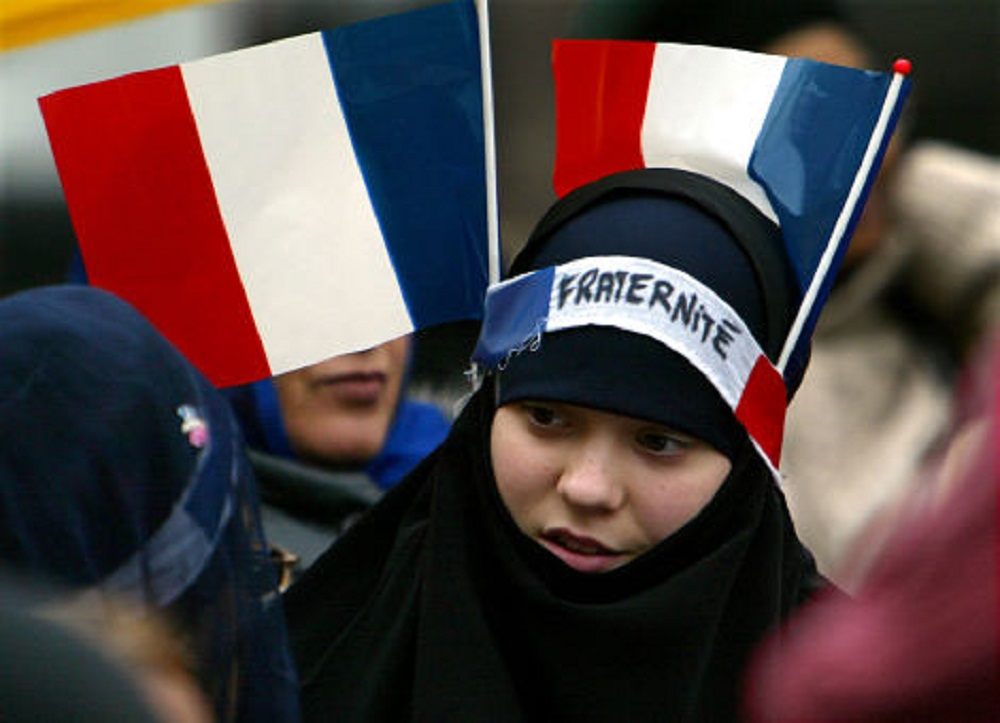
Image source: Twitter
That France historically places a premium on keeping religion out of state affairs should be nothing new to any of us. But the country’s systemic targeting of Muslims was taken up to another notch in April of 2021 with an amendment to a proposed law that would ban the hijab for minors under the age of 18 as well as banning Muslim hijab-wearing mothers from accompanying their children on public school field trips. In an interview with Haute Hijab, Rim-Sarah Alouane, a Ph.D. candidate in comparative law and a researcher/legal academic at the University of Toulouse, said there is a deep French history of suspicion and “near animosity towards religion going back to the country’s history with the Roman Catholic Church. And while the amendment is written broadly enough to apply to any religion, “of course it’s the veil that it’s targeting,” she said.
Meanwhile in Quebec, Canada, a popular third-grade teacher was removed from the classroom and assigned to another role because of her hijab, which is banned by Bill 21, a provincial law that bars “public employees in positions of authority, including teachers, from wearing religious symbols, such as turbans, kippah and hijabs, at work, as reported by the Washington Post. News spread quickly over the removal of Fatemeh Anvari in her Chelsea, Quebec community, pushing the story onto the national and international stage. However the U.S. has made strides in doing away with waivers and bans on religious head covering. In February, the National Federation of High Schools (NFHS) announced that it was doing away with its rule regarding the need for a waiver for religious head coverings for field hockey, soccer and a number of other high school sports are also following suit.
3. Muslim women are honored for their work in charity.
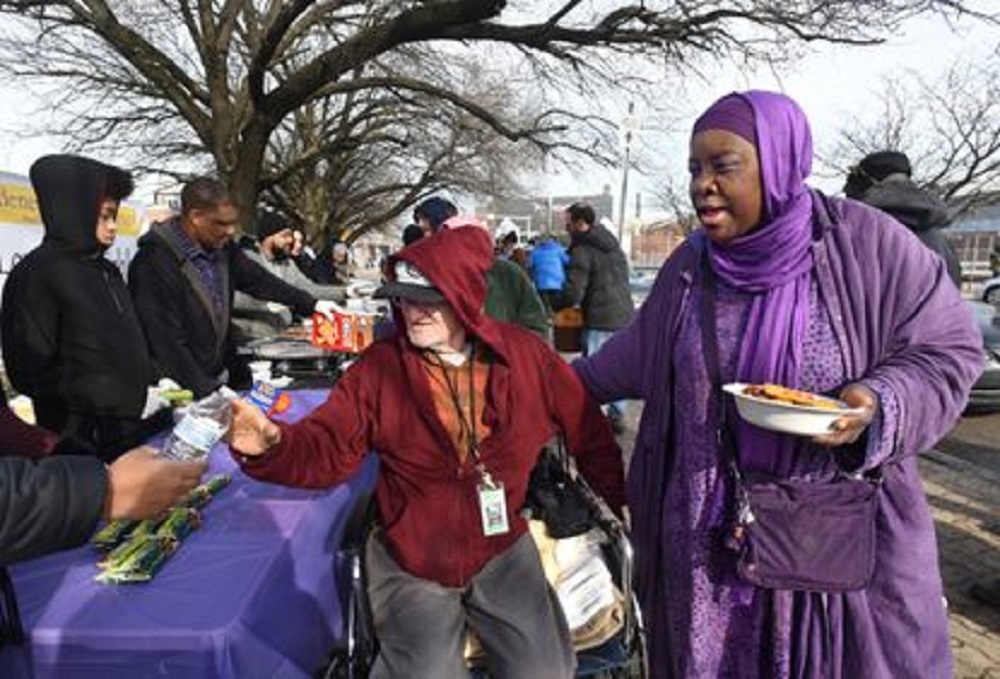
Asma Hanif of Muslimat Al-Nisaa Home Center
In 1996 Najah Bazzy began helping women and families in need out of the back of her van by providing resources. In 2019 she was named a CNN hero for founding and her work with Zaman International, which has served over 250,000 people. This year Najah was named 100 most influential women by Crain’s Detroit Business of Michigan, awarded once in five years.
At HH, we spent November 2021 sharing the stories of dynamic Muslim women, like Najah, volunteering and working in charity around the country. Executive Director Somayyah Ghariani and Program Director Saman Quraeshi created Ikram Foundation, a nonprofit to empower divorced and widowed women to pursue their education. The foundation provides scholarships and grants for these women. We also featured the story of Emina Ferizovic, who opened J&E Community Relief, a nonprofit food pantry and community center in Michigan that provides for those in. During the pandemic she had to find new ways to serve those in need while keeping their doors open. Emina started her life in the United States as a refugee from Bosnia. She wants to pay forward to Syrian refugees and those in need.
Nadia Montalvo’s father Albert Montalvo created Global Charity Teams, a nonprofit to help survivors of Hurricane Maria in Puerto Rico. Nadia later took over the foundation as director to help people in Michigan and internationally during the pandemic. The nonprofit provides meals and items for those in need. The nonprofit sponsors food and resources internationally. Nadia says being a Puerto Rican Muslimah helps her connect with people who wish to receive assistance but are afraid of being shamed in their own communities.
We also wrote about Asma Hanif, who is the definition of being “the change you wish to see in the world.” First she opened Healthy Solutions Holistic Health Center clinic in Maryland for Muslim women needing healthcare in 1987. Twenty years later she opened Muslimat Al-Nisaa HOME Center in Baltimore, Maryland for women who suffered from domestic violence and homelessness. She hopes the next generation continues to serve the community for Allah (S). And finally, ICNA Relief wrote a guest post highlighting four dedicated women who work tirelessly behind the scenes to help others. Read about them here.
4. Muna El-Kurd helps change the conversation around Palestine.
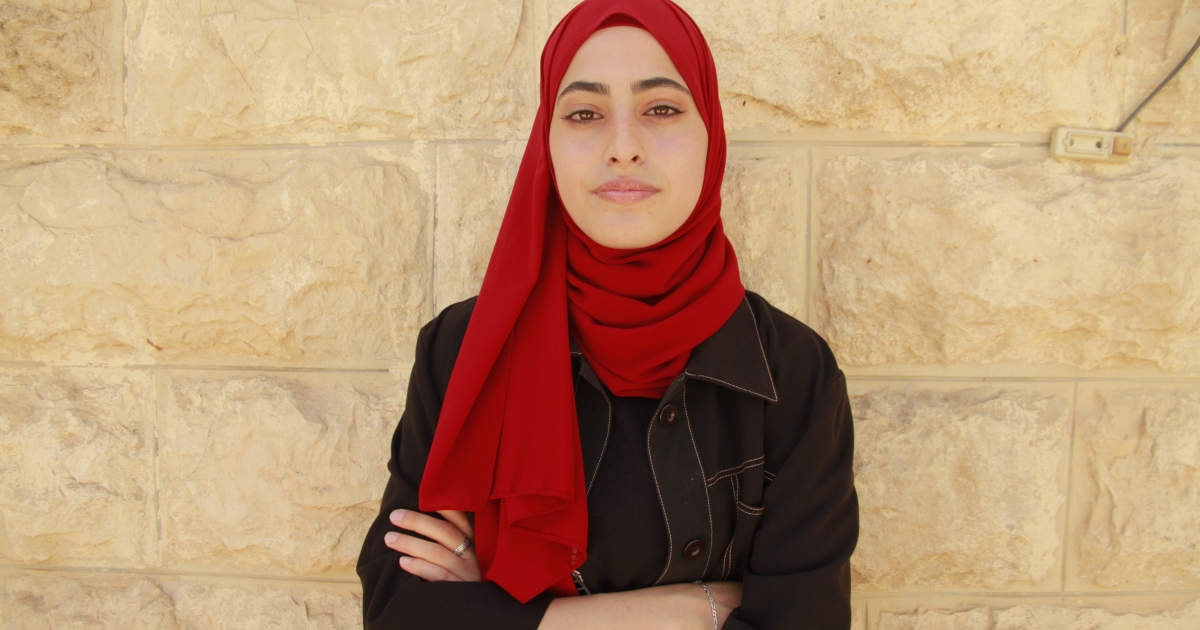
Muna El-Kurd
In May, as Ramadan was coming to a close, social media was rife with stories coming directly from Sheikh Jarrah in East Jerusalem, where Israeli settlers were seizing homes from Palestinians who had been living there for decades. This, coupled with the attack on Masjid Al Aqsa (the third holiest mosque in Islam) and bombings in Gaza (killing 21 people, including children so far) upset and enraged Muslims and Palestinians around the world. Muna and Mohammed El-Kurd, a sister-and-brother team in Palestine, helped harness the power of social media to bring attention, sympathy and support to Palestinians in a way that hadn’t been done before. Muna (and her brother) made it to Time Magazine’s 100 Most Influential Persons of the Year in 2021 for providing “the world with a window into living under occupation in East Jerusalem this spring – helping to prompt an international shift in rhetoric in regard to Israel and Palestine.”
5. Visibly Muslim women share their stories on the 20th remembrance of 9/11.
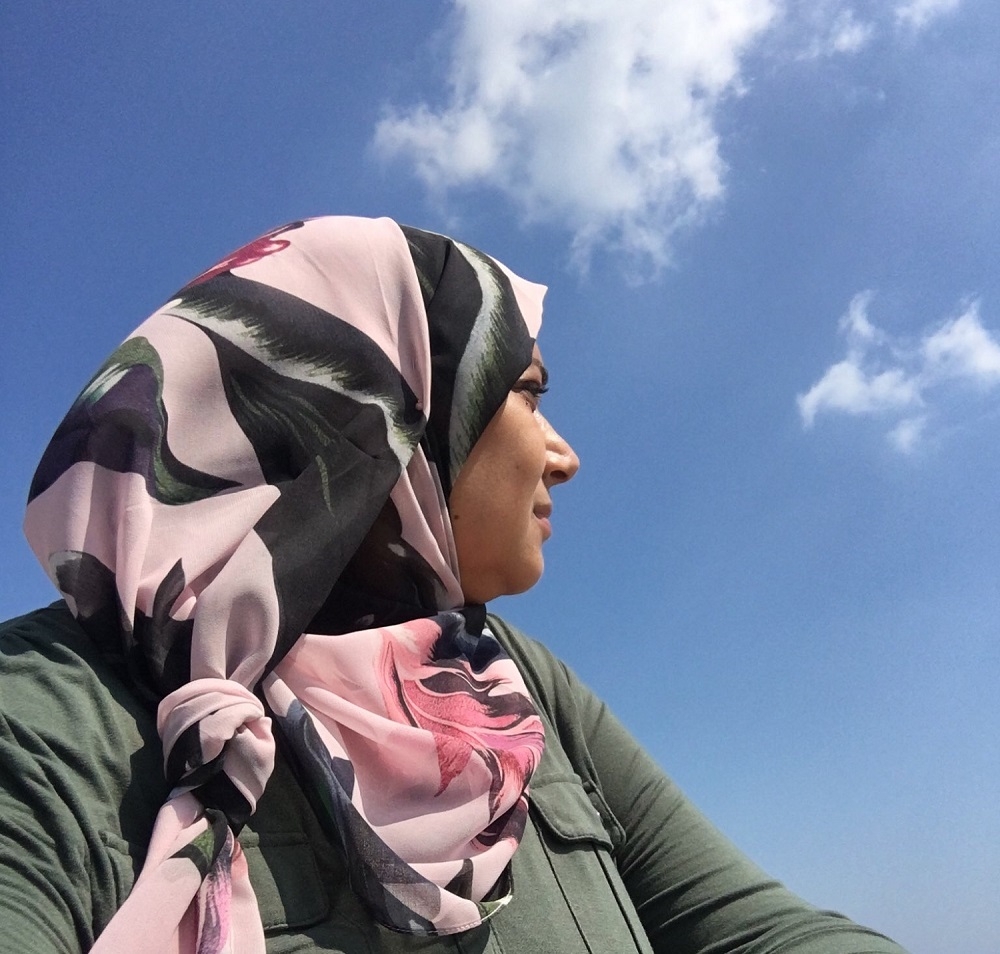
New Yorker Shay N. shared her 9/11 story.
September brought us the 20th remembrance of the horrible events of 9/11, which brought about a series of reflections by visibly Muslim women about how the past 20 years had been for them, with the rise of Islamphobia and anti-Muslim rhetoric in the U.S. And while those Muslim women who choose to be visible (whether it’s via their hijab or their work or in other ways) are more then the Islamophobia they are often pushed up against, it can’t be denied that their visibility has shaped their life experiences. Haute Hijab produced a series in September on the stories of visibly Muslim women, how the years after 9/11 affected them and their choice to remain visible. This included stories on how some of us don’t shed tears on 9/11 because “this is not about dismissing one collective trauma for another. This is about recognizing how national mourning tends to happen around certain things rather than others, and how various communities’ trauma are too often ignored or given little importance.”
We also featured stories on how to pray safely in public, what makes for a good ally in these contentious times, why some of us will never consider removing our hijab, and while others who lived thousands of miles aawy from Ground Zero faced their own anti-muslim discrimination that took years to reckon with. As our HH Blog Editor Dilshad wrote, “While there is no neat bow we can tie on this package – because frankly, life is always messy, complicated and, well, a test – there are extraordinary lives being lived all around us.”
6. #CantBanUs – women challenge clothing (and hijab) bans at the Olympics.
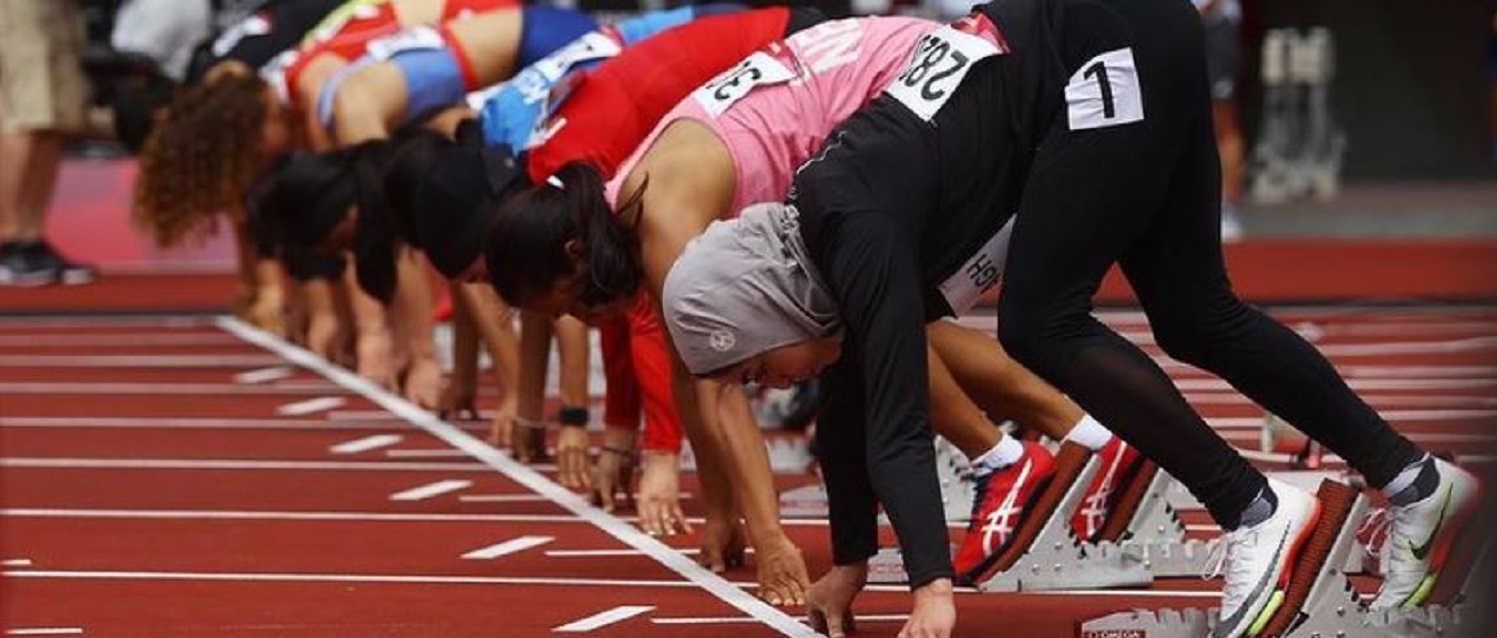
Saudi Arabia Olympian Yasmeen Al-Dabbagh
In 2020 German gymnasts refused to wear leotards during the Olympics in Tokyo, saying they should be able to wear what they want to desexualize the sport, sparking the discussion of whether women should be allowed to wear hijab and modest clothing in sports. HH welcomed this conversation as part of their #CantBanUs campaign, which supports women who are working to change the legacy of hijabi women in sports. The German gymnastics team's choice of more coverage in their uniform over their bikini-cut leotards came just days after the uproar over Norway women’s beach handball team, which was fined for choosing to wear shorts instead of bikini bottoms in their Olympics competitive play as required by the International Handball Federation.
The Tokyo Olympic games also was an opportunity for us to witness Saudi Arabia’s Yasmeen Al-Dabbagh, who ran the 100 meters wearing an HH Sport hijab. Yasmeen had a love for sports from a young age and has been called Saudi Arabia’s fastest woman. Yasmeen said she is running for herself and her country, where rules are slowly changing to include women in sports.
7. Muslim women appointed to serve in the Biden-Harris administration.
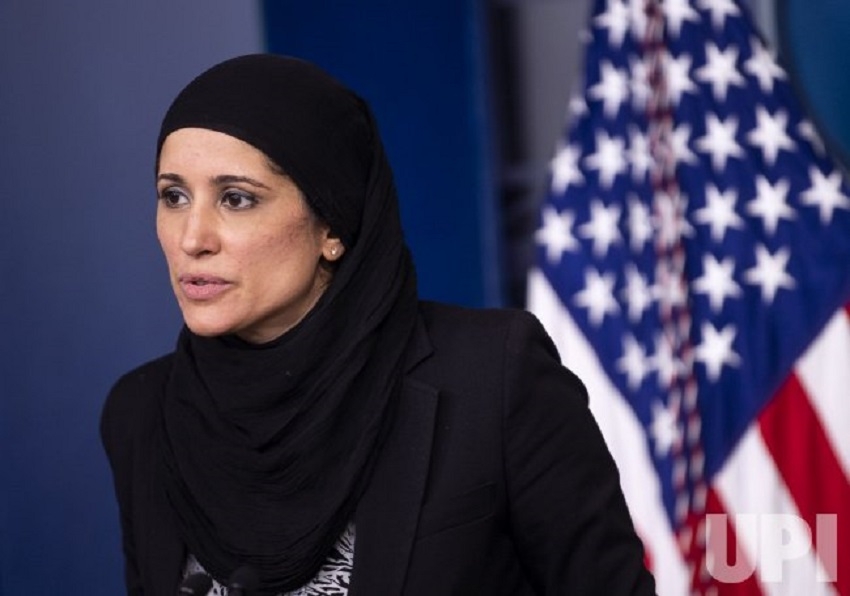
Deputy Director for the National Economic Council Sameera Fazili
In 2021 Sameera Fazili was appointed as the Deputy Director for the National Economic Council at the White House. The Kashmiri origin Indian American formerly worked as the Director of Engagement for Community and Economic Development for the Federal Reserve Bank of Atlanta. Sameera previously worked for the Obama-Biden administration as a senior policy advisor on the White House’s National Economic Council and as a senior advisor at the U.S. Treasury Department in both Domestic Finance and International Affairs. Biden also appointed Farah Ahmed (a Bangladeshi American) to the Office of Chief of Staff of the Secretary of Rural Development for the U.S. Department of Agriculture.
8. UK’s We Are Lady Parts delivers laughs AND nuanced Muslim characters.
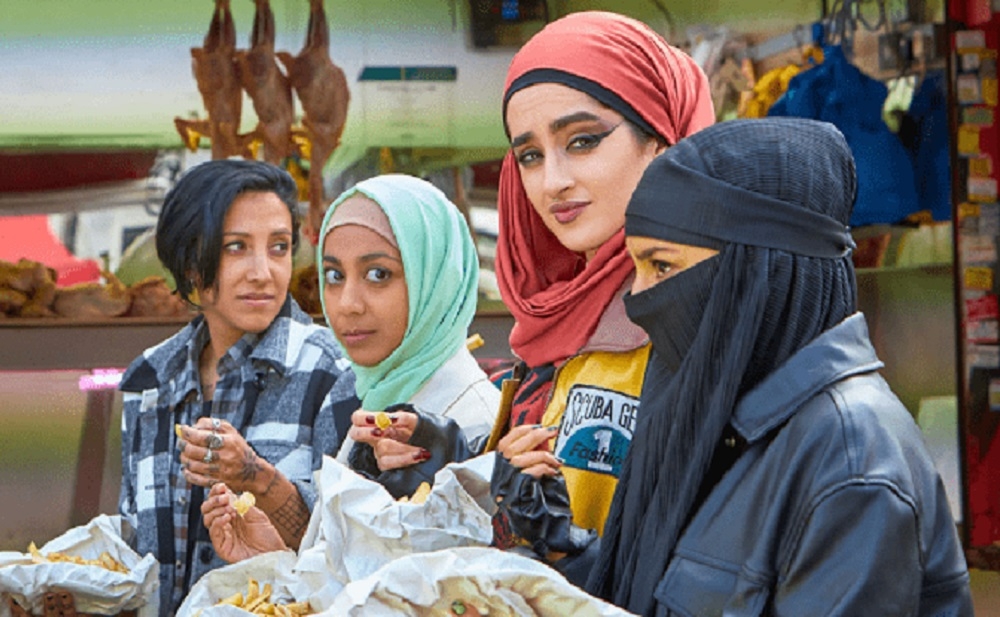
The punk rock band in We Are Lady Parts; image source: Peacock
Let’s start by addressing the white elephant in the room, wrote Hind Makki for HH in her review of the hilarious British comedy, We Are Lady Parts: “Yes, many Muslims might not like this show, these characters, these storylines. Yes, it's about an all-women punk band, so you can imagine the faith-based debates that start there. WALP, whose TV-MA rating is based on language (and some Muslim viewers may be uncomfortable with its portrayal of drug use and both straight and queer premarital relationships) is unapologetic about allowing its five female Muslim protagonists to fully occupy each facet of their identities.” WALP took British (and to an extent, American) television by storm this past summer when it debuted six hilarious (and serious) episodes about four Muslim women coming together to form a punk rock band and explore the intersectionality of their Muslim lives.
Wrote Hind, “While at first glance the Lady Parts women seem to be too punk to be real, the layers are peeled back to reveal authentic Muslim women creating their own space, refusing to be defined by Islamophobia or the patriarchy – whether from within Muslim communities or in broader British society. They navigate relationships with their families and partners, pursue their dreams and support each other as sisters. If you mute the electric guitar, most of us will recognize these women from our own lives. But why would you want to lower the volume?” And the best part? It’s been renewed for a second season!
9. UAE Minister of State for Advanced Sciences leads country’s first orbiter space mission.
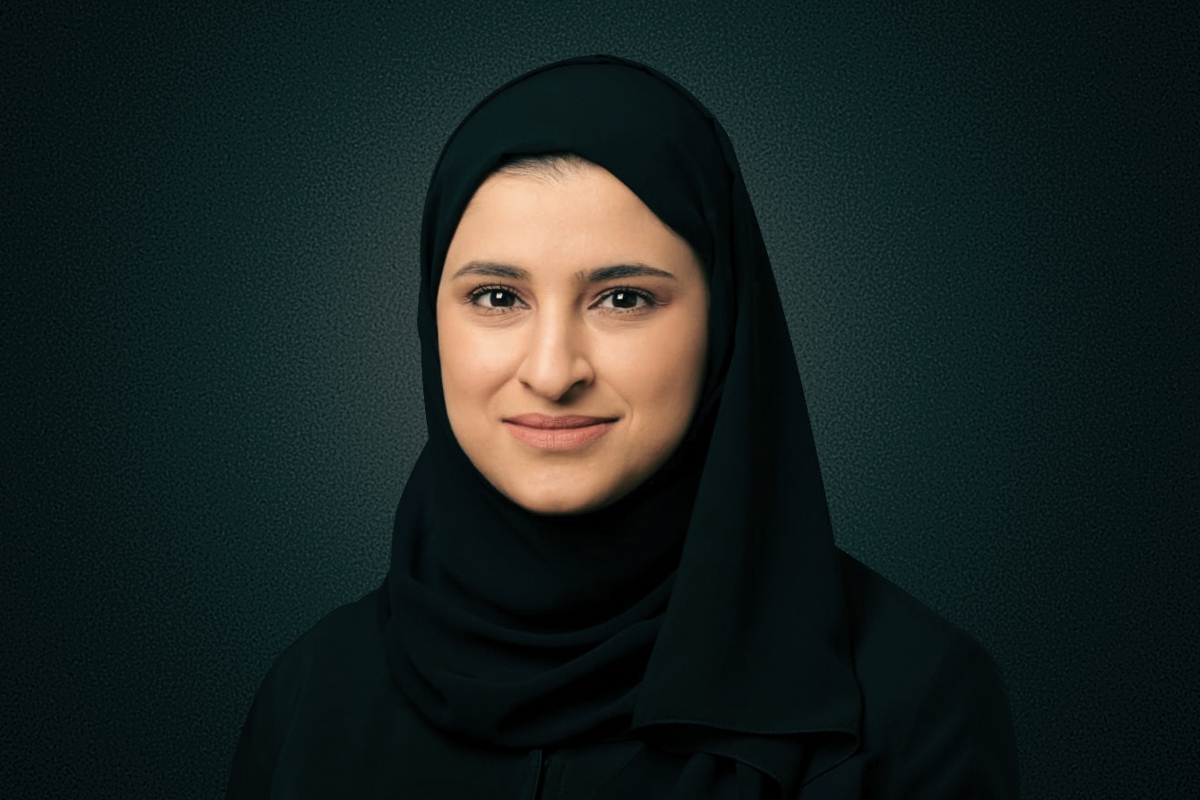
Sarah bint Yousef Al Amiri
Sarah bint Yousef Al Amiri became the United Arab Emirate’s first Minister of State for Advanced Sciences and chairperson of the UAE space agency. Sarah led a science mission to send the Al Amal spacecraft into orbit around Mars in February of 2021. It’s the country’s first orbiter mission to space. Sarah is the deputy project manager and a computer engineer, working with other universities to develop the orbiter. At 33, Sarah's the youngest person to lead a space agency. What a powerful exam for young girls to pursue careers in STEM!
Who did we miss? Let us know in the comments below, and Bismillah for a good 2022!
Subscribe to be the first to know about new product releases, styling ideas and more.
What products are you interested in?

